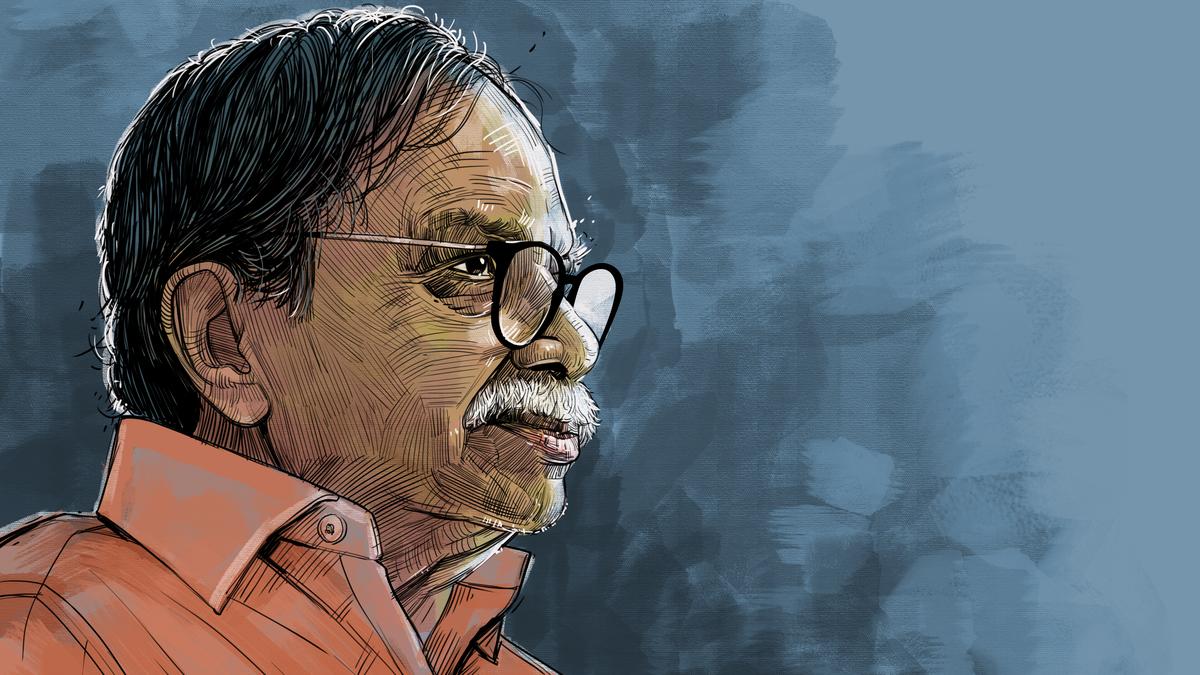
M.T. Vasudevan Nair: voice of the lone swimmer
The Hindu
M.T. Vasudevan Nair's journey from writer to filmmaker, his literary prowess, and impact on Malayalam literature and cinema.
Years ago, I made a call to writer M.T. Vasudevan Nair, as I had done on a few occasions earlier too, to seek his views on the adaptation of literary works for the screen.
It surprised me when he said, “I’m sorry, I’m not competent to talk about films.”
After a pause, he reasoned: “I’m a writer first and foremost, not a filmmaker.”
This was from someone who had won the National Award for his directorial debut, Nirmalyam in 1973 — based on a 1950s story of his, ‘Pallivalum Kalchilambum’ — and made, commendably, six more films, including a documentary on writer Thakazhi Sivasankara Pillai. He had established himself as a screenwriter of note well before that, lending an earthy literary quality to screenplays in Malayalam — a trail followed by several successive scenarists.
And here he was, proclaiming that he wasn’t qualified to comment about screen adaptations of literary works. There was a rare intellectual honesty about the statement, as I came to know later, when I read an interview where he admitted that he found some of his films inferior to his own stories or the novels they drew from. “Cinema is part technology, part creativity. Writing is far superior,” he affirmed. In another interview, he said he often felt that some of his film scripts would’ve been a lot better as stories or novels.
Come to think of it, he was probably signalling that his films, particularly the screenplays written by him, were detours from his mainstream literary activity that began in his early 20s.
Kerala in the 1950s and 60s was witnessing a unique structural transformation of society, and the young individual — specifically, the young upper caste man — haplessly caught in the morass of a fast-disintegrating feudal system caught M.T.’s attention. His early protagonists were all lonely, confused and full of self-doubt — something that the youth of the day easily identified with. From Appunni (Nalukettu) to Govindankutty (Asuravithu) and Sethu (Kaalam), they struck a chord with the young male reader, their quotidian crises immediately becoming his.

When reporters brought to her notice the claim by villagers that the late maharaja of Mysore Sri Jayachamaraja Wadiyar had gifted the land to them, Pramoda Devi Wadiyar said she is not aware of the matter, but sought to assure people that no effort will be made to take back the land that had been gifted by the late maharaja.





















 Run 3 Space | Play Space Running Game
Run 3 Space | Play Space Running Game Traffic Jam 3D | Online Racing Game
Traffic Jam 3D | Online Racing Game Duck Hunt | Play Old Classic Game
Duck Hunt | Play Old Classic Game










